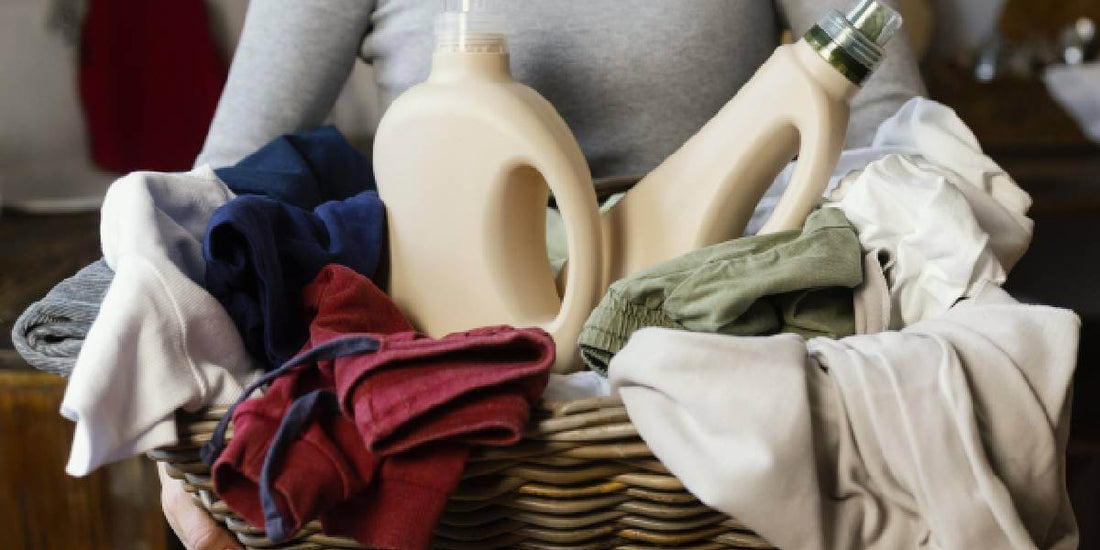
How To Care For Pre-Loved Clothes
Share
To keep up with ever-changing trends, second-hand clothing is an excellent alternative to fast fashion. With the proper care, vintage and second-hand pieces can meet all your wardrobe needs.
Caring for pre-loved clothes goes beyond fashion—it's a commitment to sustainability. From thrift store finds to vintage heirlooms, these garments deserve the right attention to maintain their charm and longevity. In this guide, we’ll share practical tips to help you preserve the beauty and integrity of your pre-loved wardrobe, ensuring you can enjoy them for years to come while contributing to a greener planet.
Keep reading this blog to discover how to care for pre-loved clothes.
How To Clean Pre-Loved Clothes
First things first, learn how to clean pre-loved clothes. Find out more below:
Ask About The Store’s Sourcing
When shopping for pre-loved clothing, it’s vital to vet the retailer. Many pre-loved and online thrift stores have a rigorous vetting process. Be especially cautious with larger second-hand chains and scrutinize items.
Inspect For Damage And Stains
It is better to look for stains, holes, or stretched fabric, when buying second-hand. Consider whether the piece can be repaired or it needs extra care. Use your sense of smell to check for unpleasant odors. Remember, imperfections don’t always mean neglect; they often reflect a garment well-worn and loved.
Removing Stains
If you’ve brought home a piece that needs some care, don’t worry—the internet has you covered. There are many ways to treat pre-loved clothes, from ink to sweat stains, without harsh chemicals.
Household items like vinegar and baking soda can work wonders on stains, both inside and outside your wardrobe. Hydrogen peroxide is another helpful option for removing blemishes. You can even use lemons to eliminate stubborn spots from your clothing naturally!
Be sure to do a quick internet search on caring for thrifted clothes to address specific stain removal needs. Avoid using hot water or blotting immediately, which can sometimes worsen oil or protein-based stains.
Maintaining Second-hand Clothes
Read about what you need to know about maintaining second-hand clothes:
Repair Small Tears and Holes
Little tears and holes in second-hand clothing often result from normal wear and tear. However, ignoring them can lead to more significant issues and extensive damage. To repair second-hand clothes, you can ensure that the garments remain wearable and extend their usable life. This approach helps minimize fashion waste and ensures you get the most out of your used clothing.
Deal with Stains Immediately
Addressing stains promptly is vital for preserving the appearance and lifespan of your clothing. Stains become harder to remove if left untreated and can cause lasting damage. Blotting the stain from the outside and pre-treating it with a stain remover or natural remedy before washing are effective strategies. Implementing these strategies can prevent stains from ruining your second-hand clothes and extend their lifespan.
Wash Clothing in Cold Water
Washing clothes in cold water is an eco-friendly and practical way to care for used garments. Cold water conserves energy, reduces fading, and helps maintain fabric quality. It also effectively cleans clothes that aren't soiled and helps prevent shrinking and stretching.
Tips To Follow For Washing Vintage Clothing
Read about the tips for washing vintage clothing. Follow these to keep your pieces in good shape and condition!
Check The Tags First
Always begin by checking the tags on the clothing. Some items may lack tags due to being cut off or hand-sewn. A few garments are labeled dry-clean only, indicating they shouldn’t get wet.
Put Like Colors Together
The vintage clothing pile can include aprons, nightgowns, rugs, curtains—anything made of fabric that can’t be washed in a washing machine. When ready to handwash, sort into separate piles of lights and darks.
Soaking Vintage Clothes
You’ll need a suitable container to soak the clothing. A washbasin is perfect for one item, while a large bucket or plastic storage tub works well for multiple pieces.
WARNING: If you suspect a dark clothing item has never been washed (perhaps it has its original tags or appears brand new), DO NOT soak it with other items. Colors may bleed and affect the other clothes. Instead, wash it separately in the sink to be safe.
Use Gentle Hand-Washing Techniques
When cleaning vintage pieces, the key is to avoid agitation or friction. This can cause delicate material details to fade or tear. Use gentle hand-washing techniques with cool water and a mild detergent to clean your garments safely. Gently massage the fabric between your fingertips without overlapping strokes, and rinse until all soap residue is gone.
Steps For Hand-Washing Vintage Clothing Items
Read about the steps you need to follow for washing vintage clothing items:
- Sort clothing by lights and darks, and wash separately.
- Fill the sink or plastic tub with water.
- Add a small amount of laundry detergent.
- Swirl the water around to dissolve the detergent.
- Gently move clothing in the water without twisting or squeezing.
- Let them soak for about ten minutes.
- Drain the water and rinse the clothing under the tap.
- Repeat the washing steps if the water isn’t clear.
Final Thoughts
Now you know how to store pre-loved clothes, clean them, and repair them whenever you buy them. Always research the item, inspect it, and check for small tears and holes. Since you are purchasing it, take your time to examine it thoroughly.
Speaking of thrift clothing, if you're looking for clothes, shoes, or anything else, check out PreLoved Online, the top online thrift store in Pakistan.
